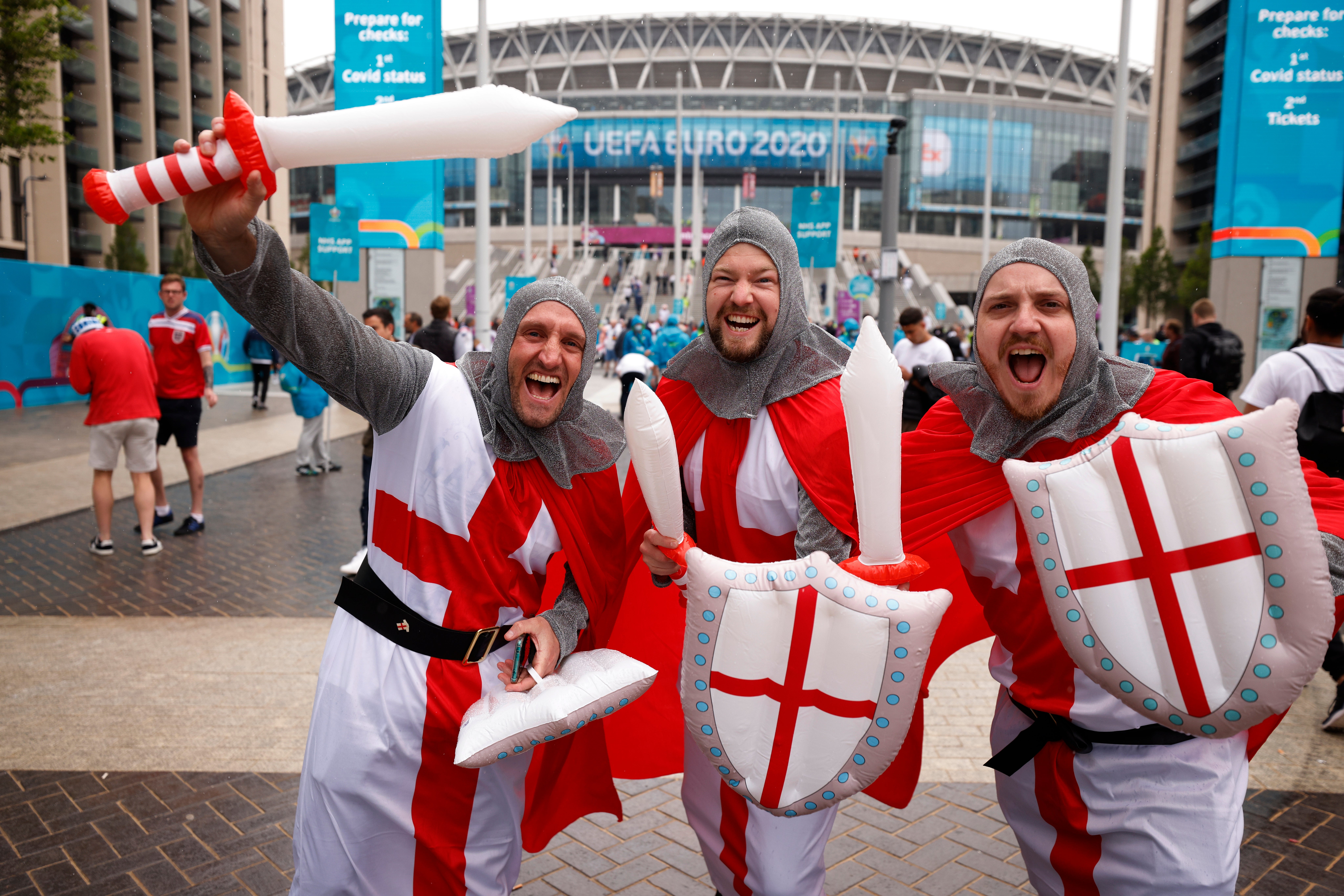Why don’t the English get a day off for St George’s Day? We don’t deserve it
England is a divided country. A bank holiday to revel in our shared cultural identity would be laughable – remember the Festival of Brexit? – and would do precious little to restore national pride, says Femi Oluwole


Your support helps us to tell the story
From reproductive rights to climate change to Big Tech, The Independent is on the ground when the story is developing. Whether it's investigating the financials of Elon Musk's pro-Trump PAC or producing our latest documentary, 'The A Word', which shines a light on the American women fighting for reproductive rights, we know how important it is to parse out the facts from the messaging.
At such a critical moment in US history, we need reporters on the ground. Your donation allows us to keep sending journalists to speak to both sides of the story.
The Independent is trusted by Americans across the entire political spectrum. And unlike many other quality news outlets, we choose not to lock Americans out of our reporting and analysis with paywalls. We believe quality journalism should be available to everyone, paid for by those who can afford it.
Your support makes all the difference.I’m a bit jealous of the Irish. They get a day off for St Patrick’s Day, a public holiday in honour of their patron saint. But we don’t get one for St George’s Day in England. There’s a petition with over 70,000 signatures calling for it. The problem is, a national holiday won’t restore the pride of people struggling to stay warm and fed.
A YouGov poll last year showed that 68 per cent of the British public feel the UK is in general decline, with two-thirds saying they were less proud to be British than they were five years ago. Now bear in mind, five years ago, YouGov polled England specifically and only 45 per cent of young people said they felt proud to be English. The rest were either indifferent or embarrassed.
The question is: What makes a person feel pride in their country?
The petition argues that a St George’s Day holiday would let English people “celebrate their shared history and cultural identity”. But we aren’t responsible for our history. We weren’t there. So why should we be proud of it? And even the act of celebrating our past more than our present, implies that things have gone downhill, which is exactly what most people feel.
As for our shared cultural identity, our society is still divided. We’ve even come up with the term “culture wars”. Lee Anderson, former deputy chair of our governing party, even said they would fight the election on culture wars. So to brag about our shared cultural identity is laughable.
Remember the Festival of Brexit – the £120m celebration that was supposed to mark the amazing triumph of national pride that is Brexit? It had to be shut down after just six weeks because not enough people wanted to take part. Even that Brexit Bugle, the Daily Express, said it “fell flat”, and called it a farce. Why? Because people aren’t proud of things that make them poorer. And 61 per cent of the public think Brexit, a project sold on the principle of English superiority, has made them poorer.
We’ve seen what overconfidence has done to us. The Brexiteers told us that the EU needed us more than we needed them. In other words, 27 countries would be hurt more by damaging their trade with one country than we would be hurt by damaging our trade with 27 countries. I even confronted Brexit supporters who confirmed that they believed we were better than 27 countries combined.
That kind of nationalism not only made us poorer, it also damaged our NHS during a pandemic, because of the harm it did to our drug supply chains and EU staff recruitment. It also played a huge part in our Covid response, with Boris Johnson saying: “There is an important difference between our country and many other countries around the world, and that is that our country is a freedom-loving country”, and so “it is very difficult to ask the British population uniformly to obey guidelines”.
So given that the parliamentary inquiry ascribed 20,000 avoidable deaths to lockdown delays, English nationalism costs English lives. Although... maybe St George’s Day is the perfect way to celebrate that, given that he also died for his beliefs. He refused to deny his Christian faith and was killed for it.
It hasn’t just ripped us apart economically and medically, but socially. Nationalism has been used as a weapon, with politicians and newspapers arguing that people who disagree with them are somehow less patriotic; Encyclopaedia Britannica says this is a key marker of fascism.
Whether it’s Andrea Leadsom accusing BBC journalist Emily Maitlis of being unpatriotic for questioning the success of Brexit negotiations, the Daily Mail referring to “enemies of the people”, or politicians consistently implying that “British people” doesn’t include Remain voters, English politics has used the concept of national pride to draw dividing lines between people.
But neither England nor the UK has been working for people. We’re experiencing the sharpest fall in living standards on record. Why would we be proud of that? If we’re serious about restoring our national pride, people need to feel that the nation helps people. That doesn’t just mean a government that reflects the progressive values of most British people, one that will improve people’s living standards here. National pride is also about our place in the world.
The TikTok generation is connected to people telling their own stories all over the world. They can see other young people whom they follow in Yemen and Gaza. They can see people just like them, picking their belongings out of the rubble of homes destroyed by weapons made in England and sold to Saudi Arabia and Israel, to serve British interests. So they’re not exactly screaming, “English people deserve a holiday to celebrate how great we are.”
In the 21st century, nationalism is the death of national pride.
Join our commenting forum
Join thought-provoking conversations, follow other Independent readers and see their replies
Comments